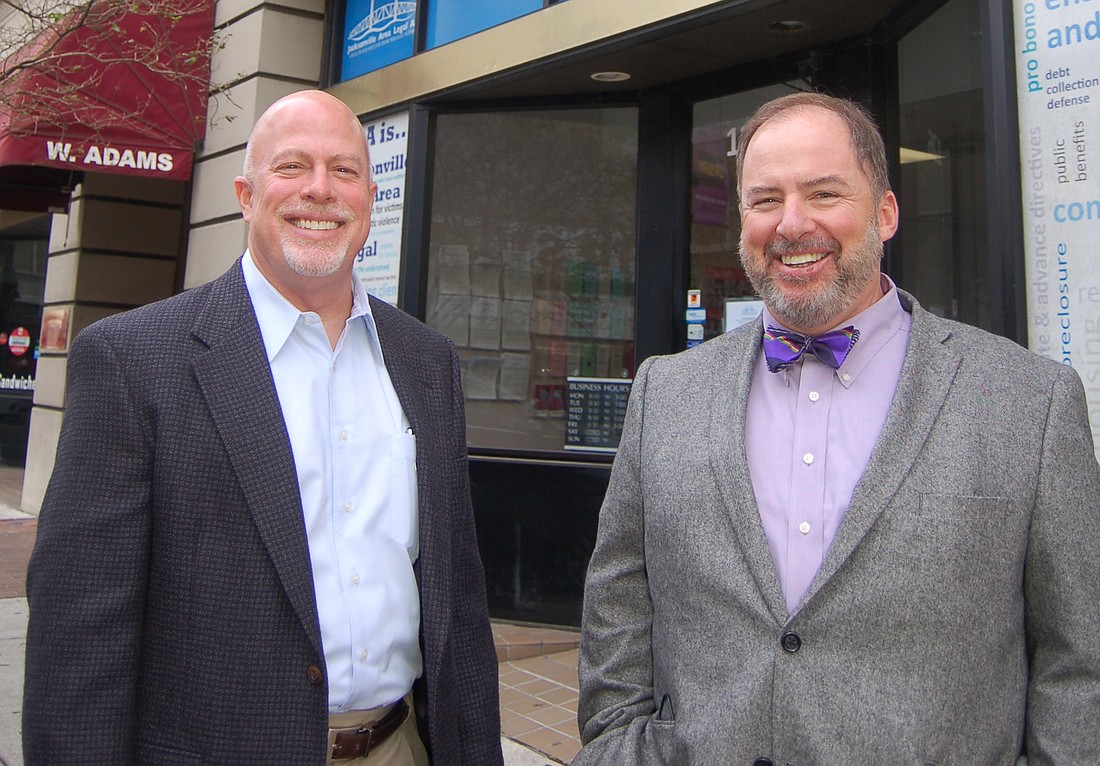
The Florida Bar rule that governs who can volunteer to help clients at legal aid organizations changed Nov. 20 — and the change added more than 3,500 retired attorneys, judges and law professors from accredited law schools to the list of eligible candidates.
Based on a recommendation from the Florida Commission on Access to Civil Justice, the state Supreme Court approved amending the “Emeritus Rule” and it could create a positive trend for the nonprofits that provide legal services to people who can’t afford to hire an attorney for a civil matter.
“It’s designed to make it easier to connect lawyers who can help with clients who need help,” said Jim Kowalski, president and CEO of Jacksonville Area Legal Aid and a member of the commission who worked on developing the rule change.
Previously, the rule required that to qualify under the Emeritus Rule, an attorney had to be in private practice at the end of their career – and that left out a group with arguably more legal experience than average, said Kathleen McLeroy, shareholder at Carlton Fields in Tampa and chair of the commission’s Resources Evaluation Committee.
“It disqualified judges,” she said.
McLeroy said another significant change in the rule allows emeritus attorneys to take on a smaller role when representing a client. Previously, their participation was limited to large cases.
“Now, an emeritus attorney can work two or three days a week at legal aid and provide advice at clinics. I think it will mean more volunteers,” she said.
Commission member Donny MacKenzie, a partner at Holland & Knight in Jacksonville and co-author of the rule change, said making law professors eligible also will be a positive for not only legal aid providers, but also for the profession.
Hopefully, he said, involving the educators with volunteering at legal aid will lead to involving their students as well.
“The client gets some help and the law student gets experience with a real-life client and a real-life case early in their career. Not only are you doing good, you’re sharpening your skills. Pro bono makes young lawyers better lawyers,” said MacKenzie.
The new pool of potential legal aid volunteers will be able to use technology when they wish to take on a case through The Florida Bar Foundation’s “Florida Pro Bono Matters” service accessible at thefloridabarfoundation.org. It’s a statewide listing of legal aid cases currently available sorted by case type and legal aid provider.
The commission will work with The Florida Bar to develop a database of the newly qualified emeritus attorneys. The list will be sorted by judicial circuit and the prospective legal aid volunteers will be contacted via a letter from the pro bono committee chair for the circuit in which they live, MacKenzie said. The letter will include the application for emeritus designation and information
“We’re going to tell them they don’t have to leave the comfort of their living room. Just get on your computer, fill out this form, look at Pro Bono Matters, take on a case and God bless you,” said MacKenzie. “That’s how we intend to roll this out.”
Kowalksi said JALA and other the other legal aid providers in the state anticipate an influx of new volunteer counselors through the upcoming outreach program.
“The lawyers need to know the rules have changed. The door is open and our clients are waiting,” he said.